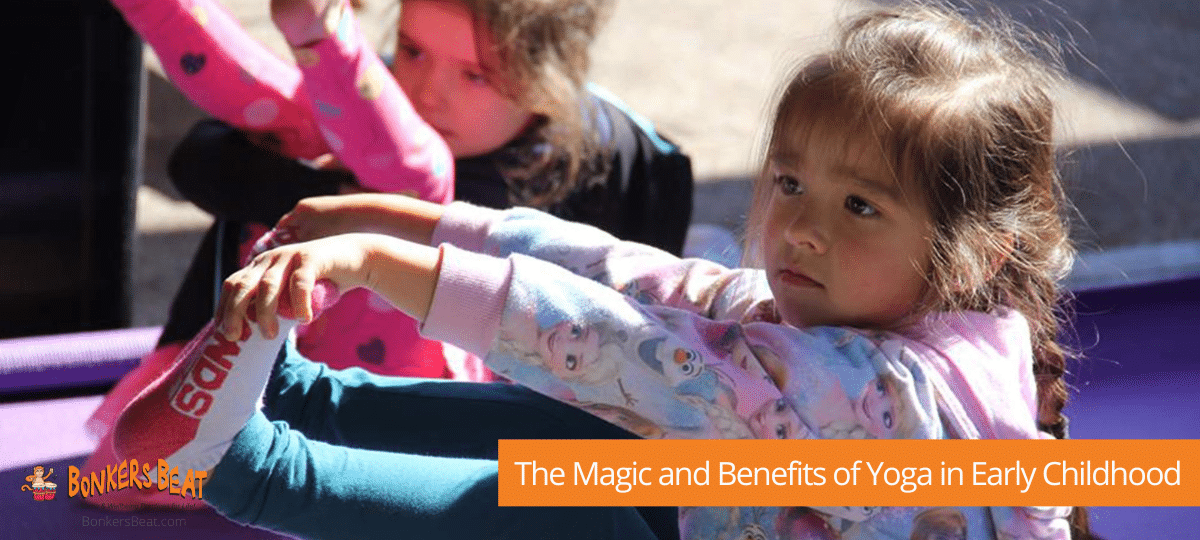In the bustling world of early childhood education, finding holistic ways to enhance children’s wellbeing and development is always a top priority. It’s no secret that here at Bonkers Beat we are huge fans of yoga to help achieve this in early childhood education. With the International Day of Yoga coming up on 21 June, let’s remind ourselves of the magic of this ancient practice (and how to harness it).
As well as its physical postures, yoga offers a multitude of advantages when incorporated into your early childhood education curriculum. Let’s explore six especially beneficial reasons to do more yoga, more often!
- Foster the Mind-Body Connection
Yoga is much more than a series of poses; it is a practice that encourages children to connect with their bodies and minds. Through yoga, children can learn to become more aware of their breathing, movement, and the way they are feeling physically, emotionally and even spiritually. This heightened self-awareness allows them to develop a deeper understanding of their own bodies, enabling them to better manage their emotions and navigate the world around them.
- Encourage Emotional Regulation
Speaking of emotions, emotional regulation is a fundamental skill for children to learn during their early years. Yoga provides a safe space for children to explore and express their emotions while offering tools for self-regulation. Breathing exercises and relaxation techniques taught in yoga can help children calm their minds and bodies, manage stress, and navigate challenging feelings. These skills are invaluable as children grow and face various social and emotional situations. In fact, many educators say they benefit too!
- Cultivate Focus and Concentration
In the early childhood years, building concentration skills is crucial for a child’s future academic success. Yoga provides a nurturing environment for children to develop focus and concentration. Through mindful movement and breathing exercises, children learn to channel their energy and maintain attention. These skills not only benefit their academic endeavours but also support their overall wellbeing.
- Promote Physical Fitness and Flexibility
Yoga is a fantastic way to promote physical fitness and flexibility in young children. The various poses and movements help develop strength, balance, and coordination. As children engage in yoga, they enhance their gross motor skills and improve overall physical health.
- Spark Creativity and Imagination
Children’s imagination and creativity can be sparked through yoga in a number of ways. Storytelling, themed yoga sessions can be a fun journey, taking children on exciting adventures that integrate movement, mindfulness, and self-expression. Yoga ignites their creativity, allowing them to explore new ideas and perspectives, and enhances their cognitive development.
- Create Lifelong Healthy Habits
By introducing yoga at an early age, you are planting the seeds for a lifelong practice of self-care and wellbeing. The positive habits and skills acquired through yoga can extend into adulthood, benefiting children throughout their lives. Yoga encourages children to value their physical and mental health, fostering a resilient mindset.
As we celebrate International Day of Yoga this year, embrace everything yoga has to offer. By incorporating yoga into your curriculum, you are creating an environment that promotes positive development holistically and lifelong wellness.
To access free Animal Yoga Poses and other Bonkers Beat wellbeing resources, follow this link.
A little yoga can go a long way for your children, your centre and even your educators. Enjoy stretching and benefit from this ancient practice daily.





